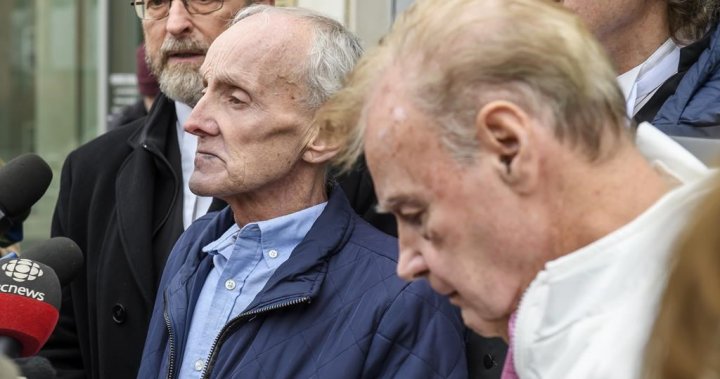Robert Mailman has a problem he never thought he would have. He has to buy Christmas presents this year.
The 76-year-old was exonerated on January 4 in a 1983 trial. murder for which he and his friend Walter Gillespie served long prison sentences. At the time, his legal team said he had been diagnosed with terminal liver cancer and had only months to live.
Almost a year later New Brunswick Court of King’s Bench Chief Justice Tracey DeWare proclaimed him and Gillespie innocent. Mailman continues to defy death. But he says he has been deprived of the joys of life and, in some ways, feels he is still behind bars.
DeWare’s decision came after federal Justice Minister Arif Virani ordered a retrial on Dec. 22, 2023, saying evidence had surfaced that called into question the “overall fairness” of the process that led to convictions.
In February, the two men reached an undisclosed settlement with the New Brunswick government, but less than two months later, Gillespie died at the age of 80.
It was Mailman who thought he wouldn’t survive the year after doctors handed down what he calls a “death sentence” in November 2023. “I spent 18 years in prison, including 24 years on very strict parole, and I was exonerated. ” he said last week during an interview in his apartment in Saint John, New Brunswick, “I came home…and I was sentenced to death. »
There are signs in the one-bedroom apartment that he is seriously ill and preparing to die. His refrigerator is stocked with high-calorie, vanilla-flavored supplements, as well as diluted fruit juice, the only food he can tolerate. On a table in the hallway is a large white envelope with the words “Funeral Arrangements.” He also has an urn chosen for his ashes.

Get the latest national news
For news impacting Canada and around the world, sign up to receive breaking news alerts sent directly to you as they happen.
But before he dies, he wants to know the outcome of a “thorough review” that Saint John Police Chief Robert Bruce ordered in January into the police investigation into Gillespie and Mailman. A written brief submitted to the court in January by Innocence Canada, which led the two men’s legal battle, alleged a “narrow view of the police”, the non-disclosure of important evidence, recantations by the two main witnesses of the Crown”, as well as a contempt for the solid alibis of men.
Mailman isn’t the only one who wants answers. Premier Susan Holt said in an interview this month she wanted to know more about the police investigation.
“Where is the report?” Is it complete? What were their discoveries? she asked. “Because (Gillespie and Mailman’s) experience of being wrongly convicted, and for so long, would be truly devastating. We don’t want anyone else to have to go through this. So we must learn from the times when we were wrong.
In the announcement, no date was given for the review’s completion, and on Wednesday, Staff Sgt. Matt Weir, a Saint John police spokesperson, said he had no details to provide.
Mailman appreciates that DeWare declared their case a miscarriage of justice, but he doesn’t expect to receive an apology from police. “I’m trying to be a Christian now,” he said. “So (the police) haven’t apologized to me, but I want them to know that I forgive them, and that’s sincere.”
He doesn’t know how to summarize the year since his acquittal. There are days when he still feels like he is behind the bars of his cell, he says. “I can touch them,” he said, clenching his fists as if around steel bars. “It always stays with you.”
Gillespie, who he calls Wally, was his best friend for more than 40 years and his death left a void. He vividly remembers their last conversation, a small talk about the day’s plans, as they met for their morning coffee ritual on April 18. It was the day before Gillespie died after a bad fall in the shower.
Mailman said he felt his friend “drifting away” during the last months of his life. There were times when Gillespie had difficulty recognizing him or his car. What “ultimately won him over,” Mailman believes, was the stress of fighting to prove his innocence for nearly 40 years.
“He held on and made it to the end,” he said, shaking his head. “But all that stress wore him out.” He always goes to their usual café: “I just sit there. I can see it.
Mailman’s two sons, his only children, died while he was in prison, and in their memory a Christmas wreath with berries sits on his kitchen island. He said he visited their graves four to five times a week and “talked to them.”
Despite his acquittal, compensation and the satisfaction of leaving a legacy for others wrongly convicted, Mailman cannot bring himself to meet his grandchildren and great-grandchildren. He said he feared ruining their future by being associated with him. “It’s my choice and they respect it,” he said.
He delegates Christmas shopping to his partner, but he ensured that this year’s gifts reach the younger generations. “They all love me and I love them. This is how we leave it.
© 2024 The Canadian Press





